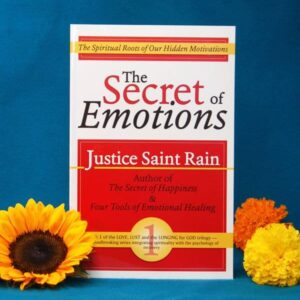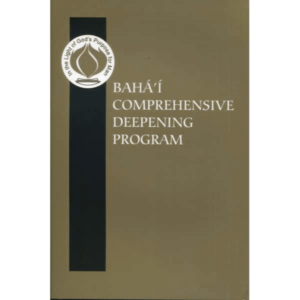Sample Chapter
Chapter 4 Epiphany
May the Forest be with You
“As you can see from these sections,” the Professor held up two small sections of tree branches which had been dissected to reveal their interiors, “the tree which was trimmed in the normal way has a good deal of disease which has invaded the interior, while the tree which was trimmed taking into account the Branch Bark Ridge has no such invasion.” The university professor pulled off something amazing that night. He told the thirty or so farmers and wood lot owners something they hadn’t known before about trees, …and it was useful. How to care for and preserve the integrity of the circulatory system of their trees. How to ensure that the trees they grew were healthier and ultimately freer of rot. In short, how to grow and harvest trees more productively.
The circulatory system of a plant is something that every child investigates in elementary school. Anyone who has put a stalk of celery into a glass of red-colored water has had his view of celery change from a vehicle for eating peanut butter and cream cheese to a co-inhabitant of the planet. I remember being startled, after having performed the experiment, that something that I had eaten was still alive. After all, I had never been asked to eat anything else that was alive and I had thoughtlessly assumed that fruits and vegetables had never been alive, or at least, were dead when we ate them. The explanation that the rise of the fluid was simply the result of being pulled up by evaporation from the leaves didn’t help. Celery was indeed alive, and it might even wiggle as you ate it!
“So, you see, if the tree is limbed improperly then the integrity of the main vertical channels is compromised and disease or insects are free to travel vertically, infecting the whole tree. But if you limb the tree, outboard of the Branch Bark Ridge, the connecting compartments which create the intersection between the vertical channels and those of the limb are left in tact. So, it’s not possible for insects or disease to enter the main trunk,” the professor continued. He held up two other examples taken from the original tree, but from a portion that was a few feet higher than the original cuttings. “We went back to the two trees we had limbed a year later and cut them down for dissection. As you see, the tree that was limbed outboard of the Branch Bark Ridge has no disease while the other tree shows signs of rot.”
I had been mesmerized by the revelations that the professor presented that evening. It had been common knowledge that trees were composite structures with sap running vertically through compartments or channels. The rings, which mark the passage of the years, were known to indicate the boundaries of each circumferential array of compartments; with each year came a new set of compartments, new channels for more sap, more fluid to be supplied by the roots, more evaporation from an ever-expanding canopy of leaves. What came first, more channels, and thus more fluid to evaporate which requires more leaves, or the leaves, requiring more channels? It didn’t matter to the trees; they continued to do what they had done for eons, adapting their growth to the available resources of light, minerals and water. Changing light, water and stones to cellulose, sugar and fruit. The Consecration of the Eucharist of the Forest.
The result of the transformation is a plant of such variety, strength and versatility that it truly deserves our reverence. Material so light it can fly or float, so hard it can dull our modern tools, so resistant to rot and insects that it can be used to house our valuables, so strong that we trust it to shelter us, so efficient in its storage of energy that we use it as fuel, so much a part of us that we drink its roots for enjoyment, chew its bark to relieve our pain, and breathe its waste for life, so luscious and fertile that we eat its fruit and seeds and distill its sap, so patient as to define stoicism, so soft that it moderates our music. How fitting that we record our thoughts, dreams and history on its fibers.
The countless uses for trees and their reputation as robust and tenacious organisms had not been the topics of the grange meeting that night. As I sat there, I began to get an appreciation for the enormous task that the professor had undertaken. It seemed to me that his task would require superhuman tenacity and stoicism.
“Every species has a Branch Bark Ridge,” he pointed to his prop, “You can identify it as the bunched-up bark on the trunk above each limb that looks like wrinkles. In fact, each species has a ridge at a unique angle. For conifers, the ridge is vertical, for hardwoods it’s at an angle. When you limb the tree, you must cut the limb outboard of the ridge and at an angle that is the mirror angle of the ridge about the vertical,” he explained. Now, modern pruning techniques suggest this approach but include a caution to not cut the bump of bark beneath the branch, called the branch collar.
As he talked, I realized that his mission had not simply been to provide a means for improved yield; his real mission had been evangelical: to change the hearts and minds of loggers. This new religion asserted the inter-relatedness of nature. Those who could see and who would become devoted followers, would see trees as delicate plants susceptible to disease and harm, plants that nurture and shelter, but also require nurturing. They do not heal from a wound on their way to attaining a genetically pre-determined stature with the same consistency as humans do. The elements of their environment can stunt, twist or shape them to a greater extent than animals. And, the time scale on which they react masks their interaction with their environment, creating the mistaken impression of indifference.
I checked the room for indifference. I wondered how many saw the value in this view of trees, the view that logging was a delicate profession. The Maine woods had been supplying these men and the paper mills with trees for years. The trees may take a long time to react, but the time scale of human economics drove the logging business. Rent, food, clothing drove the economics. What would drive someone to manage his wood lot with such care without immediate reward, even without immediate knowledge as to the results?
As I sat there I pondered that question. The answer lay in nobility, a love of the land and a belief that we are all connected, that, in order to care properly for each other, we must first be able to care for the least among us. As was my habit, I had succeeded in taking a grange meeting about trees and reduced, or elevated, it to a philosophical question. But, who- who else besides Sam, that is – would be guided by such a vision, by such delayed gratification to attempt to redefine the process and economics of logging? The woods were there for the cutting, and the paper mill would buy the pulp wood, branch bark ridge and all. As long as there were trees to cut, there seemed to be no reason not to cut them. The forests, particularly the softer pulp wood species, regenerated at a pace that allowed continual logging. I turned to Sam who was seated next to me for some answers.
“Seems like a pretty idealistic way of loggin” I said to Sam.
“Absolutely ideal,” he said smiling, “Every time a tree is damaged, it has to put energy into that wound instead of growing.”
“But how do you convince people to make the extra effort?”
“What effort?”
“Well, moving around all the trees, dragging the cut trees in between all the others without hitting them, you know.”
“We’ve got the technology. I do it on my lot with my crawler and trailer. In fact, I started a little cooperative. A few other wood lot owners and I are managing the lots with low impact logging to try and see if we can make a go of it financially. We take the equipment to each others’ lots and all work together harvesting the pulp wood, while preserving the other species.”
“How can you make money if it takes so long for a tree to grow?”
“Well, we let the hardwoods alone, cuz you can get a lot more for oak or maple if it’s straight and clear as lumber then you can selling to the pulp mills. And we take the fir, hemlock and other softwoods to the mills. So, if we have enough land we could rotate where we harvest the softwoods and keep nursing the hardwoods till they’re ready.”
I marveled at Sam’s love for the woods. His whole demeanor changed when he began to talk about his work. I admired his dedication to his life-long dream of creating a well-managed stand of hardwoods. To those on the outside, it might have appeared as though he was jousting at windmills, but to those who took the time to know him, he looked more like a pioneer. No one who ventures into new territory does it for the immediate gain. All of the world’s great pioneers put immediate comfort and gain aside for a larger social issue: whether it was the physical exploration of Cook or Lewis and Clark, the scientific exploration of Pasteur, the intellectual exploration of Aristotle and Galileo or the social and spiritual exploration of Ghandi. The pioneers of the world are driven by a vision that there is a better way, a more potent medicine, a more telling perspective, a richer land beyond the horizon; that it is possible to grow peace from turmoil with enough care.
Well, Sam is no Ghandi, but he is a pioneer, and perhaps we should stop and celebrate the lesser known pioneers among us more often. His entire life has been about commitment fueled by vision. He personifies steadfastness and certainty. His commitment to the woods is real, but it is much more; it’s a metaphor for his life, his being. Moreover, his commitment to simplicity and the woods is sanctified because it is a voluntary and personal worship. He has never been bound to the land or to the simple life by circumstances. Quite the contrary. Sam has always had the power to leave his enchanted forest, but he chooses to stay and work. His work, his family, his commitment give meaning to his life.
I had met Sam at a time when I was searching for the meaning of life. I had spent some time studying astronomy because I believed the answer I sought lay in science. And when my studies raised more questions than answers, I had decided that I needed to search within myself for my beliefs. Actually, I had been getting along rather well with science; fortunately I was able to discern that my problems lay within me. I had had just enough personal insight to be dissatisfied with my maturity, my character. I felt a need to improve, to grow, to identify those aspects of me that were worth keeping and to shed those that were not. I had reasoned that to do that effectively, I would need to isolate myself from as many people as possible. I would need to find out who I was, my strengths and weaknesses. Maine seemed like as good a place as any to find the necessary solitude. Solitude would remove any tendency I might have to emulate others or to define myself on their terms; I would be forced to deal with myself.
Solitude is too cerebral and gentle a word to describe winter alone in a house trailer in Maine. In my first winter, I was barely able to begin my quest for solitude. I was too busy staying warm and keeping my car running. The walls of the house trailer I had rented were paper-thin and the oil furnace could only keep the room in which it was located warm. I camped that winter. I spent each day, from supper till breakfast inside my sleeping bag, and only in the morning, when I stepped out into the bitter air, did I appreciate the warmth of the trailer.
Sam had spent his first winter on the old farm he had bought in what must have been similar circumstances. He had graduated from Colby with his forestry degree and bought an old farm with a large forest. The farmhouse was gone, but there was a large barn. Sam built an apartment in the pole barn in which he would spend his winters while he built the cabin. Later, he had stayed in the cabin while he built the house. The house had become necessary when Bev and Sam were married. So now, Sam, Bev and their two sons lived comfortably in what could only fairly be described as an idyllic setting: a solar and wood heated two-story home overlooking the valley to the south.
“Well, I think Bevy and the boys made some cookies for dessert. What d’ya think?” Sam turned to me with a smile. The professor had just completed his talk. The other men in the room were gathering at the front of the hall to examine the specimens that had been used to make the point about the care with which trees must be treated.
“Dessert sounds great.”
We stepped out into the cold evening air. The snow-covered ground crunched and squeaked beneath our feet. I left my jacket unzipped and my hat in my pocket. The feeling of the clear cold air was exhilarating, the bite on my ears and the stiff frozen feeling in my nostrils. It’s a marvelous feeling being in the cold air when you know that you are on your way to a warm place. I often felt that comfort or discomfort could be heightened by what I anticipated ahead. Tonight, I anticipated a warm evening with a friend. We climbed into the pick-up and headed down the snow-covered back roads.
The roads which led to Sam’s farm were dirt but were cut in a regular pattern of squares, like blocks in a suburban development. The roads didn’t really go anywhere, they just connected the many dairy farms that were in the region. Sam’s place had been one such place. We sat quietly in the truck, contented with our thoughts about the evening talk. I was certain that we would talk soon enough. We always had. I guess that was why I had left my car at Sam’s. It would have been more convenient to drive to the meeting and then go straight home, but I was looking forward to our visit as much as the meeting. More.
We came to an intersection with a house on the near corner, and woods on the other three, the road went down a small hill towards a healthy stream. The pick-up bounced and leaned as Sam eased the first wheel onto the small wooden bridge. The bridge was nothing more than some sturdy stringers that supported planks. Other boards were nailed onto the planks parallel to the direction of travel in two places, one for each set of tires to ride on. The bounce of the bridge was just enough to jostle you to consciousness as you crossed it, sort of a welcome home friendly bounce on return, and a seemingly more vigorous jostle on departure. It was as if the bridge was testing to see if you were sure you wanted to leave the comfort and security of the farm on your way out, and as if it unconditionally welcomed the prodigal son on his return, with its friendly bounce. The differences in the bounce must certainly lie in the angle that the road meets the bridge from one direction versus the other, or some other logical explanation. But whatever, it was nice to be welcomed back.
The road ascended through the woods towards a large hillside clearing. The clearing slopes from the northeast away to the southwest, and the only other building besides Sam’s is an A-frame lodge which is used seasonally. The hill had delayed a view of the waning gibbous, but it now shone its gray silver light almost parallel to the ground. The clearing must have been a hundred acres or so. The truck continued down the road towards the large barn, its weathered gray look enhanced by the moon. At the barn, the road ceased and became the driveway. We turned to the north and followed the driveway through a stand of mature sugar maples and apple trees. After a tenth of a mile or so, the driveway turned west and I could see the cabin Sam had built nestled in a stand of evergreens. We came to rest at the back of the house a little farther west. The forest was all around us; Sam’s wood lot lay to the north.
“Let’s walk around front and see if Bev’s still up,” Sam said with a grin. The house faced south. The “front” had no entrance except a basement vestibule to ease access to wood and the garden. The entrance to the house was from the back where we had parked.
The quilted blinds which covered the windows at night to retain the heat glowed reddish yellow from the interior lights. We stood quietly for a moment and looked south to the field and hills beyond. “Well I guess they’ve gone to bed,” Sam guessed.
“Pretty starry night. Do you know the constellations? You studied some astronomy right?” Sam began.
“Yeah a little, but I wasn’t there long enough to even use my keys to the observatory,”
“So why’d you leave?”
“Oh it’s a long story. I was just searching for something,”
“Which one’s that?” he asked. I never knew if Sam was asking or attempting to include me in the conversation. He knew so much about so many things.
“Cassiopeia, a big W.”
“Well I know the obvious ones,” he continued, “is that Hyades or Pleiades? I can never remember.” He pointed to a constellation that looked like a miniature of the little dipper.
“That’s Pleiades; it’s a cluster of galaxies.”
“So you figure we’re alone?”
“Can’t be,” I said emphatically, “too self-centered a view. I mean it’s mind boggling how many stars and planets there must be. We look up at the Milky Way and are in awe of how many stars we see, and that’s just one average galaxy out of billions, and we can only see about 7000 stars with our eyes, so we’re boggled by what we can see, let alone… ”
“How bout those cookies?” Sam brought me back to earth. He smiled, for we both knew how I could rattle on.
We went back around to the entrance of the house. The back door was a simple pine door with a window of four divided panes. This door led to a mud room which accommodated wet clothes and a stairway to the basement. The mud room was separated from the main house by an identical pine door. The house was two stories with the main living area and small auxiliary rooms on the first floor and three bedrooms on the second. As we entered the house, the warmth was almost overpowering. Not only was there a fire glowing in the basement furnace, but the wood kitchen stove was still warm. It was used mainly to heat large pots or to dry wet clothes. The cooking was done on a propane gas stove which sat to the east with a window above it looking towards the cabin. There was a small pantry to the left and, like everything else in the house, the kitchen cabinets were homemade of pine. There were four double hung windows across the south wall.
“I’m going upstairs to check on Bev.”
“Do you want some tea?” I asked.
“There’s coffee in the cupboard,” Sam teased, for he knew I was a caffeine addict in a health-conscious home.
“Tea’s fine.”
“Well, there’s hippie and regular tea just above the stove.”
Over the months that I had known Sam and his family, I had become familiar enough in their home to help myself. Typically, I would make coffee and generate quite a pile of burnt kitchen matches on the counter. For if we had one of our marathon sessions, I would make cup after cup, and the gas stove required lighting with each pot of boiling water. I even remember supplying my own coffee, for I was just about the only one within miles who drank the stuff. But tonight felt like it would be an early night and tea with fresh honey sounded great.
“Bev sends her regrets, but she’s already half asleep,” Sam said as he returned, “so, I guess we’re alone tonight.”
“In the universe?”
“Imagine the complexity of getting along with other humans from other planets,” Sam challenged.
“Yeah, I know. Well there is the thought that life on other worlds would cause us to unite, instead of bickering.”
“Humanity is just in its infancy. Imagine, needing someone else to fear or hate, so that we live peacefully together. Nationalism. Tribalism. That doesn’t say much for us.”
“But it’s always that way, that’s not growth. That’s a sports mentality, Giants versus the Bears, Red Sox versus the Yankees. And as soon as you change locations you change allegiance.”
“Delaying the inevitable. Eventually, we will all have to put our egos and prejudices aside and learn to care for one another.”
We had been here before. I was aware of Sam’s religious beliefs. For him, it all made sense. He saw all the religions and their individual manifestations as one; Abraham, Buddha, Krishna, Moses, Zoroaster, Christ, Mohammad, the Bab, and Baha’u’llah. Often it is said in conversations concerning religion that we all worship the same God. People make this observation as a way of defusing any potential tension or conflict when the topic is raised. Sam, on the other hand, meant it literally: that all of the religions were the same and all of the prophets were of the same spirit. Furthermore, I knew from the reading I had done, that conflict over religion was impossible with a Bahái for two reasons. First, religion is viewed as a personal responsibility: there are no clergy. Each individual is responsible for their own spiritual education through the study of all the world’s writings, including the hundred or so volumes of Bahái writings. Thus, it was incongruous for Sam to try to convert me; conversion is in direct opposition to the principal of individual pursuit of truth. And two, it was also a deeply held belief, that an irreligious man is preferable to disunity over matters of religion. It was implicitly impossible to have a contentious discussion about religion with a Bahá’i.
“The Golden Rule,”
“Yup, guess prob’ly,” he mimicked a Maine accent.
It was true, the fundamental verities of all the world’s religions seemed to be the same. I had read and studied some, and had queried everyone who was willing to talk with me.
“So, how do we get to the point where everyone’s on the same page?” I asked rhetorically and then continued without a pause, “it seems to me that if everyone sincerely and earnestly pursued the teachings of their own religion then they would arrive at the same place.”
Sam simply nodded.
It wasn’t that simple for me. I had readily grasped the concept that all religions emanated from the same source, that was easy. The difficult part for me was accepting the existence of God. I knew that if I ever came to believe that a supreme being created our world and all the other worlds, then I would readily and instantaneously accept the interrelatedness of humanity and religion.
I was still looking. I had believed since adolescence that I needed to understand the meaning of life. I had the arrogance of the faithless, choosing to believe that the world could be explained analytically, and casually casting-off religious faith. In my haste to dismiss religion, I was missing the most fundamental and obvious point. Even in the absence of religious belief, it was not necessary to understand the meaning of life; it was only necessary to have a life with meaning.
And if I was so ready to acknowledge the interrelatedness of religion, didn’t that undermine my staunch belief that religion was manmade? How could man-made religions exist in such disparate regions and times with the same fundamental teachings? That in itself, seemed to imply a higher spiritual order.
“We just each have to do our own part,” I said at last.
“An ever-advancing civilization,” Sam added.
“I’d better get going, and let you get to bed.”
Sam walked me to the door. He would have stayed up longer if I would have required it. I never understood who gained more from our talks. He would always thank me and I him. And we would always both be eager to pick up where we left off.
The moon had risen higher in the sky and shafts of silver shone through the trees, highlighting the bare hardwoods in the forest beyond the driveway. And sure enough, each tree prominently displayed its branch bark ridge for me. The professor was right; I saw the branch bark ridge before I saw the trees. I walked over to the closest one and ran my fingers over the ridge. In life, there are those times when we are presented with an undeniable truth, which we may or may not fully understand but which we can not ignore. And with acknowledgment comes the responsibility to abide by that truth and to lead our lives in accordance with it. I had been changed that night. My life would never be the same. I now cringe at the thought of cutting a tree; I always prune outboard of the branch bark ridge, and on the occasion of limbing a dead two-hundred year oak, I stopped and said a prayer.












Reviews
There are no reviews yet